Audiology
Are any of the following situations familiar to you?
- You have to constantly ask the people around you to repeat themselves.
- You find it difficult to follow conversations.
- People complain that you listen to the TV/radio at a volume that’s too high.
- You struggle with talking to people on the phone.
- You hear a consistent humming, ringing, and/or buzzing.
If so, it’s likely that you’re experiencing a degree of hearing loss that’s keeping you from living your life to the fullest. Here in Chicago, IL, Dr. Gary Wiesman and his team can provide a comprehensive diagnostic assessment to determine the cause and severity of your condition, and hearing aids are available to improve your day-to-day comprehension of the world around you. Contact us today to schedule a consultation.
Audiology Testing
Hearing loss is a common consequence of old age, but it can also occur from constant exposure to loud noises, infections, physical trauma to the head, or even birth defects. Our evaluation will be as exhaustive as possible so that Dr. Wiesman can fully understand the extent of your condition and your candidacy for assistance. Painless and informative, Otoscopy will let us see that your ear canal is free of obstructions, like ear wax, which is sometimes the entire cause of a hearing problem. With the help of simple audiology tests, we’ll determine how capable you are of hearing tones at low frequency levels and repeating words that are spoken at comfortably routine volumes.
Hearing loss is connected to other serious health problems like cognitive and memory disorders, so an annual hearing checkup should be as routine as a trip to the dentist.
Hearing Aids
The routine use of a proper hearing aid has been shown through countless studies to provide patients with valuable benefits, helping them distinguish speech in both quiet and noisy situations and improving their overall wellbeing. In-the-ear hearing aids are typically ideal for patients with mild to moderate hearing loss, and they’re designed to fit inside in the area for a virtually invisible appearance. Some are designed for continuous wear - 24/7 for months at a time. Alternatively, behind-the-ear hearing aids are suitable for a wide range of hearing loss and have a sleek design that can blend in with a patient’s natural hair or skin color. The hearing aid recommended to you by Wiesman Nasal & Sinus will be the best option to meet your individual needs, aesthetic preferences, lifestyle, and financial budget.
Understanding the Cost of Audiology
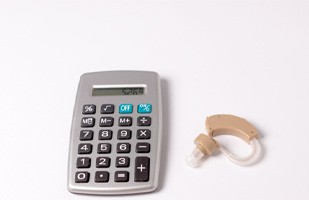
If you have been struggling to hear, we encourage you to schedule a visit with Dr. Wiesman and our team. Still, you might hesitate to contact us due to concerns about cost. We are ready to discuss pricing with you and help you explore your payment options. With the help of insurance and/or financing, most patients are able to afford professional audiology and get back to enjoying all of the wonderful sounds around them.
Factors that Affect the Cost of Audiology
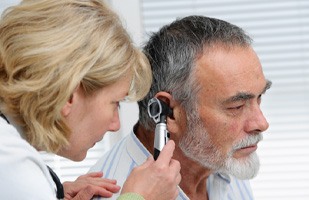
There are a few factors that can have a bearing on the cost of audiology:
- The cost of the hearing exam. An exam is important for us to learn the extent and cause of your hearing problems. This portion of audiology care is usually fairly affordable.
- The cost of treatment. Treatment could be as simple as the removal of some earwax. In other cases, hearing aids or other more expensive options are necessary.
- Insurance policies vary in their approach to audiology services. They sometimes cover hearing tests and hearing aids. Our team welcomes most types of medical insurance, and we can help you figure out how your benefits apply and how much you will have to pay out of pocket.
Professional Audiology vs. Over-the-Counter Hearing Aids
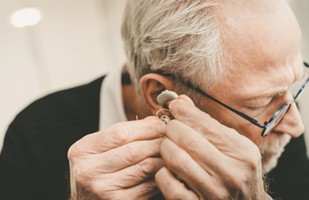
Prescription hearing aids can cost thousands of dollars, so you might be tempted to buy over-the-counter hearing aids or even a simple sound amplifier. Such devices can be moderately effective, but it would still be wiser to seek professional care.
With professional care, you can learn about the cause and type of your hearing loss, so your treatment can be tailored to your unique needs. Plus, professional hearing aids feature technology and options that are difficult or impossible to find with cheaper, over-the-counter options.
Options for Making Audiology More Affordable
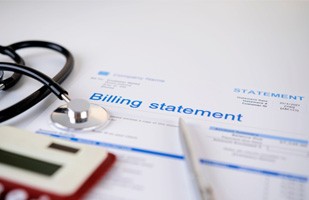
If your health insurance will not cover our audiology services, or you have a high copay or deductible, you may be eligible for financing. We are partnered with CareCredit, a third-party company that offers low-interest and no-interest payment plans for medical services. The application process is quick, and most patients are approved for credit.
We also accept major credit cards. If you have a no-interest special offer on one of your cards, you may be able to take advantage of it when you purchase our services. You could also earn points toward appealing rewards.
Professional audiology services can seem expensive, but they are an excellent value. Your hearing is a priceless asset that is worth protecting! Contact us today to learn more about how we may be able to serve you.
Audiology FAQs
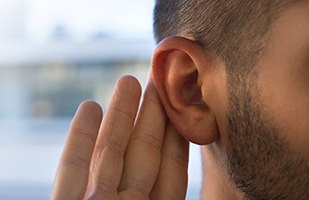
Dr. Wiesman and our in-house audiometrist, Scott Lightbody, are ready to help you get on the road to improved hearing and better communication with your loved ones. Before you schedule your hearing test with us, though, you might want to learn more about audiology and hearing loss. Below, you will find answers to some commonly asked questions about these important subjects.
At What Age Is It Normal to Experience Hearing Loss?
For various reasons, people may experience hearing loss at any age. Therefore, even if you think you are “too young” to wear a hearing aid, you should still seek testing if you are experiencing difficulty communicating with others. With that being said, we do acknowledge that hearing loss is most common in older adults. Most get their first hearing aid around age 70, although they may have noticed a degree of hearing loss several years before that. In fact, it is common for individuals to first notice hearing difficulties in their 40s.
What Is the Most Common Reason for Hearing Loss?
Age-related changes in the ear or auditory nerve are common among people in their 40s, 50s, and older. Listening to loud noises for an extended period of time can also adversely affect hearing. For example, individuals who work in construction and do not wear hearing protection are prone to this problem. Other possible causes of hearing loss include infection, high blood pressure, heredity, and head injury.
What Are the Different Types of Hearing Loss?
There are three categories of hearing loss. One is sensorineural hearing loss, which occurs when the inner ear or hearing nerve suffers damage. This is the most common type of hearing loss. Conductive hearing loss is when the outer or middle ear cannot properly conduct sounds to the inner ear. Mixed hearing loss is a combination of sensorineural and conductive hearing loss. During your testing session, we can determine which type is affecting you and what you should do to enjoy improved hearing.
How Often Should I Get My Hearing Tested?
The American Speech-Language-Hearing Association recommends that adults ages 18 – 40 who have not noticed any hearing loss undergo a test every 3 – 5 years. More frequent testing is recommended for people over 60, those who are regularly exposed to loud noises, and anyone who has noticed a decline in their hearing. A hearing test is simple and noninvasive, so there is no reason for patients of any age to be nervous about it.
Does Medical Insurance Cover Audiology Services?
Many of our services are purely elective and are not covered by insurance. Fortunately, though, some forms of insurance cover hearing tests because they are often a medical necessity. Our team accepts most health plans, and we will be happy to help you navigate your benefits. If your insurance will not cover the services we offer, we can assist you as you apply for financing through CareCredit. We also accept major credit cards. Contact us today to request an appointment or learn more about our financial policies.

